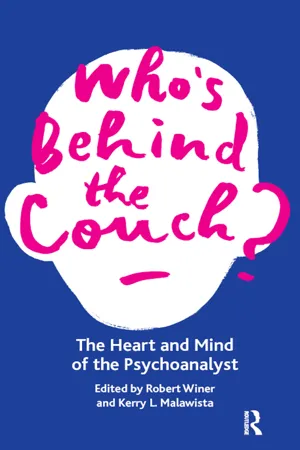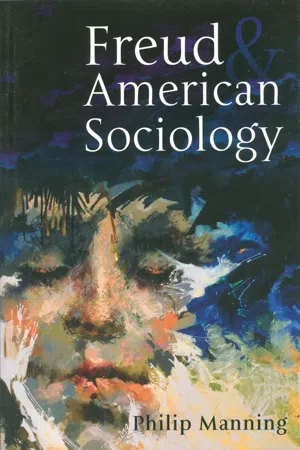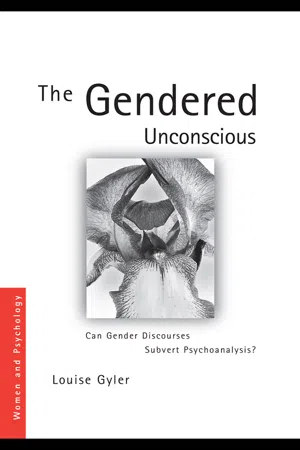Social Sciences
Nancy Chodorow
Nancy Chodorow is a prominent feminist sociologist and psychoanalyst known for her influential work on gender and family dynamics. She is recognized for her groundbreaking book "The Reproduction of Mothering" which explores the impact of mothering on the development of gender identity. Chodorow's work has significantly contributed to the understanding of how family structures and gender roles are constructed and perpetuated.
Written by Perlego with AI-assistance
Related key terms
3 Key excerpts on "Nancy Chodorow"
- eBook - ePub
Who's Behind the Couch?
The Heart and Mind of the Psychoanalyst
- Kerry L. Malawista, Robert Winer(Authors)
- 2018(Publication Date)
- Routledge(Publisher)
CHAPTER ELEVEN Nancy Chodorow (United States)Nancy Chodorow is a training analyst at the Boston Psychoanalytic Society and Institute; a lecturer in psychiatry at Harvard Medical School; and professor emerita of sociology at University of California, Berkeley. She has written on gender and sexuality, Loewald, the American independent tradition, comparative theory, and psychoanalysis and social science. Her most recent books include The Power of Feelings and Individualizing Gender and Sexuality. She is in private practice in Cambridge, Massachusetts.Present:Nancy Chodorow (NC), Kerry Malawista (KM), Bob Winer (BW)KM: The first question we’ve asked everyone is just how you came to be a psychoanalyst. NC: My first intellectual passion was culture and psyche. The first time I had intellectual passions that weren’t Jane Austin, in high school, or Little Women, as a child, was when I read, just by happenstance, Erikson’s Childhood and Society. I was hooked. I was interested in something Erikson captured, and now that I know so much more about myself, I realise that his first chapter, on Sam, captured a male me (chuckles). You know, a transplanted little Jewish child from New York who’s living in California after the Second World War, who’s trying to be a “nice little boy, even though he’s Jewish”. I was the only Jewish girl in my high school class of three hundred. So, at age four, I was a little girl who was born in Queens who wanted to be a cowboy, because she lived in the West, in Palo Alto.So that floated along for a long time. I did psychological anthropology as an undergraduate. But when that field became much more anti-psychological and anti-psychoanalytic, I switched into sociology, so that I could go to a sociology department that had Philip Slater, who was really the only active psychoanalytic sociologist in the country. And then the women’s movement started, and the personal was political. I was in women’s groups, and we were trying to learn about mother–daughter relationships from our own experience. Slater was an expert on family dynamics, but not on mothers and daughters. He said, “There’s nothing written, there’s nothing on it.” You know, there’s mother–son, there’s father–daughter, there’s father–son. - eBook - ePub
- Philip Manning(Author)
- 2013(Publication Date)
- Polity(Publisher)
The simplicity of Chodorow’s query belied the complexity of the answer. In fact, her answer had three parts: in the first she showed the inadequacy of either biological or social explanations; in the second she showed the complexity of the “psychoanalytic story” and highlighted a reformulation of Freud’s analysis of the Oedipal complex; in the third she identified sociological contributions to the answer to the problem. So, on the face of it, Chodorow appeared to be seeking the middle ground that was responsive to feminism between sociology and psychoanalysis. However, this is misleading, as the clear focus of the book is the psychoanalytic component.This allows us to identify the key to her work: Chodorow wanted to explore the typical content of gendered, unconscious, internal worlds and the accompanying conscious and unconscious senses of personal identity that typically emerge from them. In her first book, Chodorow was not generalizing from actual clinical case studies, which at that time she didn’t have; rather she was constructing an ideal-type of the dynamics of mother–daughter relationships and the differences between them and the dynamics of mother–son relationships. Although these experiences are in significant ways different, they are all processed in the same way. Thus, as Chodorow summarized in her new preface to the second edition of The Reproduction of Mothering:On a general level I would reiterate that everyone has a psyche that operates in the ways that psychoanalysis describes (through unconscious fantasy; projection and introjection; defenses against anxiety and guilt such as repression and splitting; creating an inner world, managing desire and aggression; and so forth): this psyche is part of our human psychobiological makeup. (1999a: xii)Chodorow went on to claim that this terrain is not primarily theoretical but rather “empirical-clinical” (1999a: xii). In arguing in this way, she takes a position that is quite close to Prager’s claim that genuine communication when it occurs at all occurs in the clinical psychoanalytic setting. Clearly, the issues facing both of them are, first, whether it still makes any sense to theorize generally about the typical content of gendered interactions and, second, whether the viable methodological options have been so narrowed down that the “empirical-clinical” is really the only one left standing. Chodorow is of course aware of the critics of her work who claim that her analysis is too general, with the result that it universalizes and essentializes heterogeneous experiences. She must maintain a delicate balance between criticizing Parsonsian action theory (as she understands it) and the Frankfurt School for being too general, while at the same time salvaging the idea that some kind of general theoretical and empirical observations are still possible. - eBook - ePub
The Gendered Unconscious
Can Gender Discourses Subvert Psychoanalysis?
- Louise Gyler(Author)
- 2010(Publication Date)
- Routledge(Publisher)
Chodorow’s stress on the significance of a relational connected feminine self challenges the relatively unquestioned position in classical psychoanalytical theory of the paradigm of separateness (and its association with mental health). Mari Jo Buhle (1998) draws attention to a common (mis)-reading of Chodorow’s work as valorizing a cultural “developmentally natural” feminine psychic structure containing nurturing and relational capacities. Another reading of Chodorow’s work suggests that it minimizes the conflict in the mother-daughter relationship (Flax, 1990), as well as the differences among women.Following her psychoanalytic training in the mid 1980s, Chodorow’s work has taken a clinically inflected approach, emphasizing the particularities of experience, fantasy, identifications and the body in generating individual and personal meanings (1999b, 2002, 2003, 2004a). Chodorow holds both a postmodernist position regarding the importance of experience, the freedom to challenge and the view that knowledge is perspectival, and a modernist one in relation to questions of evidence and language (2004a, 2005). While her work contributed to the development of relational psychoanalysis, which is discussed below and in the following chapter, she is wary of some aspects of relational feminist writing. Chodorow writes: “I find myself uncomfortable with and resistant toward the postmodern locutions and word play that have entered into relational feminist writing” (2004b, p. 104). She also distances herself from postmodernist academic humanities scholars who write about psychoanalysis from non-clinical perspectives because she argues that their writings elide the actual pain and trauma of patients (2005). According to Chodorow, her approach is an “intersubjective ego psychology” one. This hybrid position brings together ego psychology with its commitment to intrapsychic processes such as drives, fantasies and defences and with interpersonal thinking in which the focus on the relationship between analyst and patient is privileged. Chodorow sees her position as “a sort of middle terrain between ego psychology and relational psychoanalysis” (2004b, p. 125).
Learn about this page
Index pages curate the most relevant extracts from our library of academic textbooks. They’ve been created using an in-house natural language model (NLM), each adding context and meaning to key research topics.


